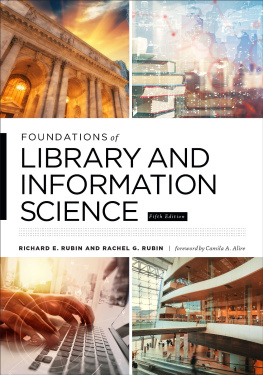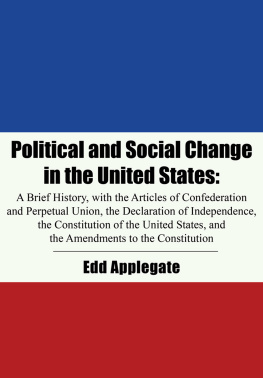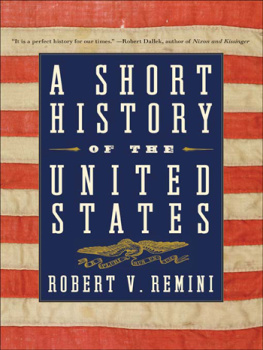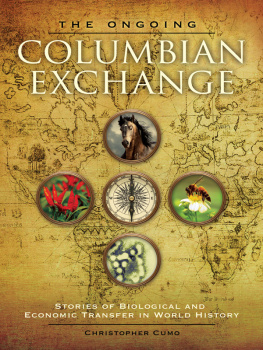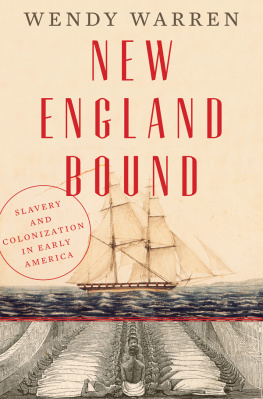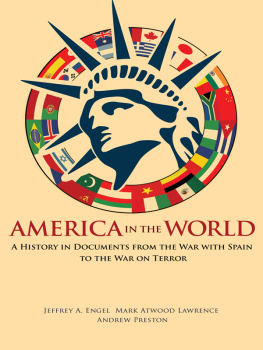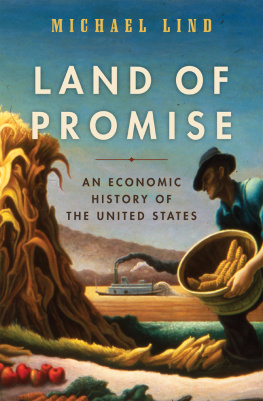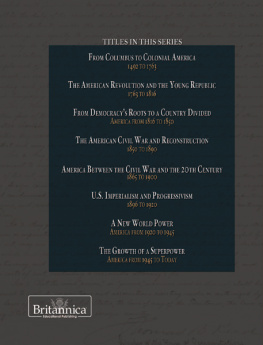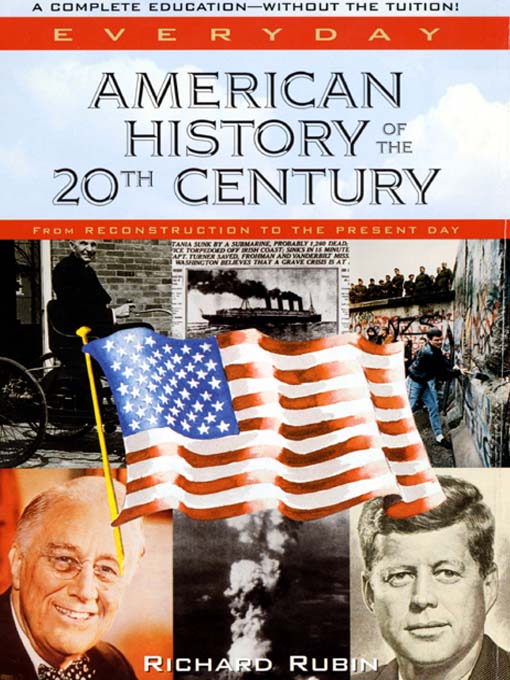CONTENTS
INTRODUCTION
W hat, exactly, comes to mind when you hear the word history? Be honest, now. If youre like most people, those three syllables summon up one of two things: either the notion of a past so remote as to be irrelevant (as in the expression thats history!) or a vague memory of having to memorize long lists of names and dates, the kind of recollection that can still make you shudder. Perhaps youre wincing, thinking about all the history youve forgotten, but its a safe bet that you know more historyespecially modern American historythan you realize. You probably know something about Theodore Roosevelt and Woodrow Wilson and Franklin Delano Roosevelt, about the Wild West and the Roaring Twenties and the Great Depression, about the Spanish-American War and the First World War and the Second World War. Its just that, well, youre not quite sure how much you remember, and how much you think you might remember, and who and what came first, and when and where exactly. For some reason, dates like 1881 and 1898 and 1912 and 1933 and 1948 stick in your mind, and names and phrases like Charles Guiteau and Eugene V. Debs and the Bull Moose Party and the Teapot Dome Scandal ring a bell, but youre not quite sure why. Maybe you even want to find out, to remember what you forgot from those old history classes and perhaps learn a little more while youre at it. But the thought of cracking open those old textbooks... not too appealing, is it?
The problem is that too many of those old textbooks arent much more than lists of names and dates, those same lists that can still make you break out in a cold sweat just thinking about them. The bad news is: those old history textbooks and classes might have been tedious experiences that have turned you off to the subject. The good news is: history is anything but a dry list of names and dates. In truth, history isas you might guess from the word itselfa story. To be a bit more precise, history is a massive web of stories, some of which follow or precede other stories, some of which explain other stories, and some of which have nothing to do with any other stories but are worth telling, and listening to, just because theyre so interesting. They are stories about ambition and greed and jealousy and pride and honor and idealism and risk and reward and failure and genius and stupidity and hatred and love. Above all, they are stories about peoplepeople who faced situations we encounter every day, and people who had experiences that were absolutely unique.
History is not fixed, not two-dimensional, not black-and-white; it is always open to interpretation, always subject to speculation, always riddled with mystery. Only one thing is certain about history: All of it was essential to creating the world we live in today. In that regard, every story you will read in this book, and any other history book, is your story, too. What happens to you today has a great deal to do with what happened to other people a century ago; what you do tomorrow is influenced, whether you know it or not, by what other people did yesterday. In learning about history, we invariably learn a lot about ourselves, too.
This book deals with American history since 1880a period when the United States was transformed from a relatively small, remote, and isolated outpost to the planets richest, most powerful, and most influential nation. It is also, not coincidentally, a period that produced some of the worlds most unforgettable charactersand some of its best stories.
CHAPTER 1
THE OLD
CENTURY
U.S. P OPULATION :
50,155,783 (1880)
62,622,250 (1890)
O H ,W HERE D O W E B EGIN ?
T o understand America in 1880, you have to understand that it really wasnt America at all, at least not America in the sense that we think of it today. Sure, if you were somehow to find your way into a time machine and travel back to 1880, youd probably be able to make your way around. After all, the language hasnt changed, at least not entirely. But what, exactly, would you see? More important, what wouldnt you see?
Well, of course, you wouldnt see automobiles or airplanes or subways, and you wouldnt see telephones or phonographs or electric lights or electric anything unless you were in a scientific laboratory or a public facility (like a government building or a police station) or a tiny handful of very affluent and progress-oriented households (and you probably wouldnt be able to actually call anyone, anyway, since no one else had a telephone).
If you came across a group of children or adults engaged in some sort of sporting event, it would almost certainly be baseball or some variation on that game; football was played in few places, hockey was only played north of the border, and basketball hadnt even been invented yet. You almost certainly wouldnt see any building taller than three stories, unless you were in a large city, where you might see some as tall as five stories. Youd have to make a special trip to a department store or some other large commercial or industrial facility to see an elevator or escalator.
You wouldnt see huge, sprawling cities. You wouldnt see suburbs. You wouldnt see massive, industrial-scale farms. You wouldnt see powerful labor unions or a minimum wage or a maximum work week or child-labor laws. You wouldnt see an income tax or an election for U.S. Senator (both institutionsincome tax and the direct election of U.S. Senatorswere not established nationally until 1913).
Come to think of it, chances are you wouldnt see a female voteror a black voter, either, not even in states that had abolished slavery long before the Civil War. You probably wouldnt see anyone who wasnt of British, Scottish, Irish, German, or African descent, unless you were in the Midwest, which had a large, recently arrived Scandinavian population, or in San Francisco, which had a sizable Chinese community (although you probably wouldnt see a Chinese voter).
You wouldnt see much in terms of quality health care or public aid or safety codes or government regulations on food, drugs, housing, or business practices. In many parts of the countrymost parts, reallyyou wouldnt see an awful lot of indoor plumbing.
You would see a majority of citizens living on farms or in small towns. Youd see a country that was largely agricultural, largely conservative, relatively homogenous, relatively small in population (especially given its huge area), still existing in the shadow of the great European empires, still centered along the eastern seaboard, still very much in the grip of the Civil War, even though it had been over for fifteen years.
Youd see a country that was still very much in its youth, still inexperienced in matters of foreign intrigue and international finance and literature and the arts. Youd see a country that had a sure sense of its own magnificent destiny and its eventual paramount position in the world, but which still had a great distance to go before it would realize that destiny, and assume that paramount position. In other words, a totally different America from the one we know today. And yet, that America was really not that far off.
Within a decade, the face of the countrywho lived in America and wherewould change entirely. Within two decades, America would defeat a major world power in a war and become an imperial power in its own right. Within four, it would be credited with determining the outcome of the greatest war the planet had ever seen, one that had consumed the entire globe for four long years. Within seven, it would be the richest, most powerful nation in the history of the world.


